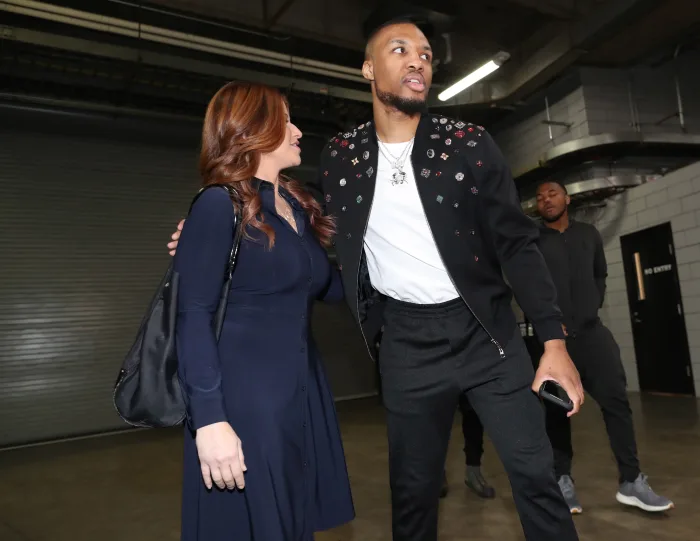
Rachel Nichols, the veteran sports broadcaster best known for her work at ESPN and CNN, is charting a bold new path in her already distinguished career. After more than two decades as a prominent voice in sports journalism, Nichols has announced an ambitious new venture that will take her beyond the bounds of traditional broadcasting and into the realm of media entrepreneurship and content innovation.
The 50-year-old reporter and host revealed this week that she is launching her own multimedia production company, aiming to create sports-centric content across multiple platforms, including streaming, digital, podcasting, and long-form video. The company, which Nichols will lead as founder and CEO, is set to focus on storytelling that merges in-depth journalism with the evolving digital consumption habits of modern sports fans.
“It’s the most exciting and personal project of my career,” Nichols said in a statement. “I’ve spent years having incredible conversations with athletes, coaches, and personalities. Now I want to bring those conversations to audiences in a more creative, direct, and unfiltered way.”
This move comes after Nichols’ high-profile departure from ESPN in 2021, following a much-publicized controversy surrounding leaked audio and questions of diversity in sports media. Despite the incident, Nichols has remained a respected figure in the industry, drawing support from numerous players and colleagues who credited her for her professionalism, preparation, and ability to cover the game with insight and respect.
Following her exit from ESPN, Nichols joined Showtime Sports, where she contributed to a variety of projects, including boxing coverage and athlete-driven storytelling. Her time at Showtime helped re-establish her brand outside of the ESPN ecosystem and gave her the creative freedom to explore new formats and ideas. That experience, Nichols said, helped lay the foundation for this latest chapter.
While details about her company’s name and initial slate of projects remain under wraps, Nichols teased a mixture of interview-based programming, behind-the-scenes docuseries, and digital-first content designed for platforms like YouTube, Spotify, and TikTok. She has also reportedly had conversations with athletes and celebrities about collaboration, hinting at a vision that’s as much about ownership and empowerment as it is about content delivery.
“There’s a huge opportunity right now to rethink how sports stories are told,” Nichols said. “Fans want authenticity. They want access. They want substance. And we’re going to give it to them in ways that feel modern and real.”
Nichols’ reputation for building trust with athletes could give her a unique edge in the increasingly competitive content space. She was among the first female reporters to earn widespread respect in the male-dominated world of NBA coverage, earning praise for her work on “The Jump,” where she combined sharp analysis with thoughtful interviews. Over the years, she’s developed relationships with some of the biggest names in basketball—from LeBron James and Kevin Durant to Chris Paul and Giannis Antetokounmpo—many of whom are now also exploring their own content ventures.
This convergence of athlete-driven media and independent journalism is precisely the intersection Nichols appears poised to explore. Her company could very well become a hub for voices who want to bypass traditional media structures and tell their stories on their own terms.
In many ways, Nichols’ career has mirrored the evolution of the sports media landscape. She broke into the business in the 1990s as a newspaper reporter before transitioning to television, where she earned a reputation for her tenacity, clarity, and poise under pressure. Her roles at CNN, TNT, and ESPN spanned everything from sideline reporting to anchoring in-studio shows, covering events like the NBA Finals, the Super Bowl, and the Olympics.
This next step, however, places Nichols not just in front of the camera but behind the scenes, calling the shots as a creator, executive, and entrepreneur. It also reflects a broader trend in media: the migration of top-tier talent toward independent platforms where they can build brands untethered from the






